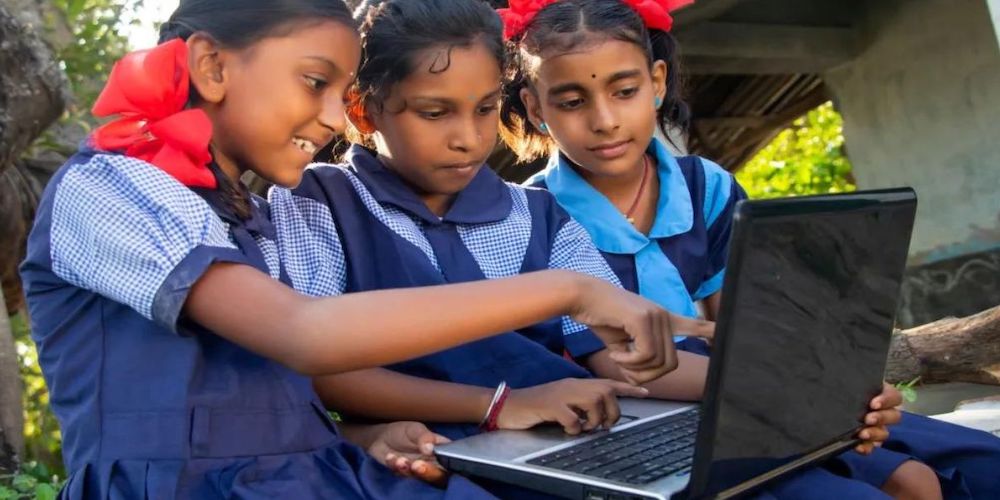Activating Education through AI

Artificial Intelligence (AI) is increasingly impacting Indian education today, offering solutions for personalized learning, addressing learning gaps, and enhancing teaching methodologies
The government of India’s education vision for Viksit Bharat 2047 is to create an inclusive, high-quality education system for skill development and life abilities. India has 1.5 million schools, more than 8.5 million primary and secondary teachers and more than 260 million enrolments into the school system every year. In the higher education space, more than 40 million students enrol in more than 1000 universities and 42000 colleges annually. However, the Indian education system is characterized by fixed curriculums, archaic education delivery models and static testing concepts. This has caused a gaping chasm between education and contemporary work skills. And it is precisely here that the advent of AI, is changing things. It is helping the system move away from standardized to personalized, making it relevant and effective for the present.
AI-powered platforms are being used to create interactive learning experiences, offer real-time assessments, and bridge the gap between urban and rural education. The Indian government is also actively promoting AI in education through various programs and initiatives.
Here’s a more detailed look at how AI is transforming Indian education:
1. Personalized Learning
• AI algorithms can analyze student data to identify individual learning styles and preferences, allowing for customized learning pathways and materials.
• Edtech platforms like Byju’s, Vedantu, and Embibe are using AI to personalize instruction, provide tailored feedback, and identify knowledge gaps.
2. Addressing Learning Gaps
• AI-driven tools can provide targeted interventions for students struggling with specific concepts, and adaptive learning platforms can adjust the difficulty of material based on individual performance.
• Multilingual AI tools can help bridge language barriers and make education more accessible for students from diverse linguistic backgrounds.
• AI can help identify and address learning gaps related to different learning styles and capabilities.
3. Enhancing Teaching
• AI can automate administrative tasks, freeing up teachers to focus on lesson planning, personalized curriculum development, and student engagement.
• AI-powered virtual assistants and tutoring systems can provide students with on-demand support and guidance.
• AI analytics can provide valuable insights into student performance and learning patterns, helping teachers adapt their teaching strategies.

4. Accessibility and Inclusivity
• AI-powered platforms can make education more accessible to students in remote areas and those with limited access to quality resources.
• AI can help overcome language barriers and make education more inclusive for students from diverse linguistic backgrounds.
• AI can personalize learning for students with diverse learning needs, including those with disabilities.
5. Government Initiatives
• The Indian government is actively promoting AI in education through various programs and initiatives, including the National Education Policy 2020, which emphasizes technology integration so as to equip students with skills like digital literacy, coding and computational thinking. CBSE introduced AI as a subject for students in classes IX to XII, and has also partnered with IBM to launch the SkillsBuild Program, which includes orientation sessions on generative AI. In collaboration with Intel, CBSE has also developed an AI Facilitator Handbook which provides educators with comprehensive training materials and real-life examples. From the 2025-26 sessions, the CISCE board has introduced robotics and AI as part of its curriculum. AI/GenAI features prominently in the curriculum of India’s top business schools, including the IIMs and ISB.
• The NITI Aayog’s “AI for All” initiative aims to educate students and teachers about AI through online courses.
• AI has been introduced as an optional subject in CBSE schools.
• Government-funded projects and research initiatives are also promoting AI advancement in education.
6. Challenges and Concerns
• While AI offers numerous benefits, there are also challenges to address, including ensuring data security and student privacy, addressing potential biases in AI algorithms, and ensuring that AI tools are inclusive and accessible to all students.
• It’s important to ensure that AI is used to enhance, rather than replace, the role of teachers.
• AI tools should be used in conjunction with critical thinking skills and analytical thinking, rather than simply being used for information retrieval.


